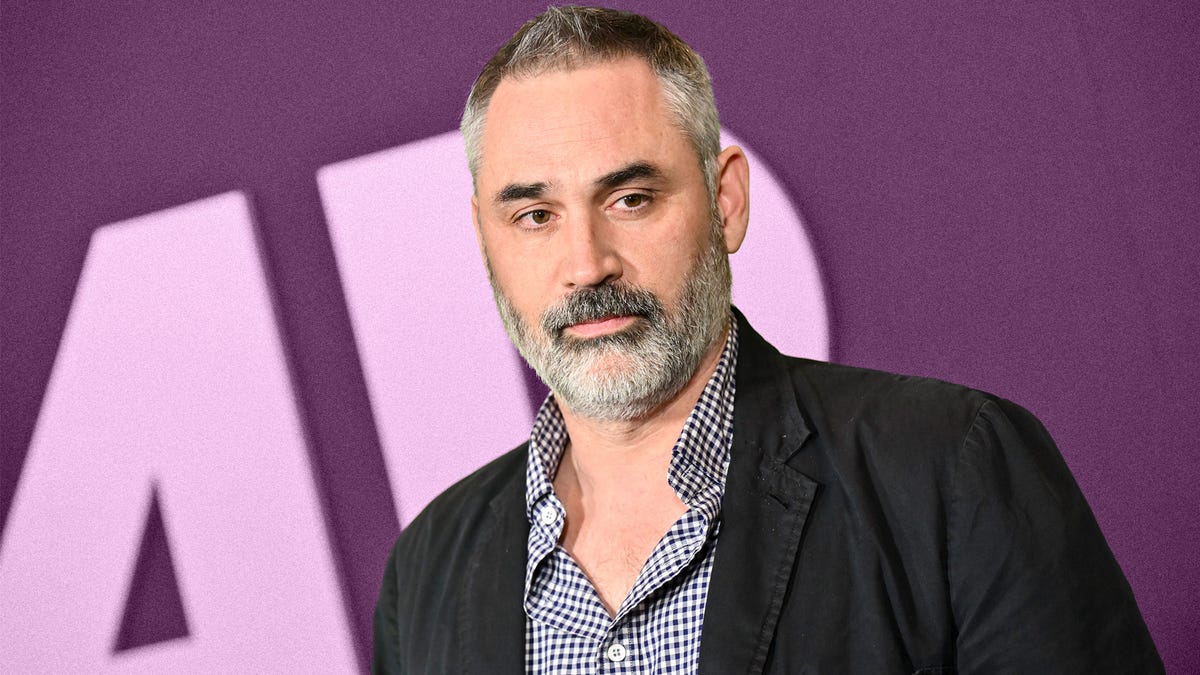America’s Leaders Have No Clue What to Do About Disinformation


As disinformation and misinformation have increasingly been blamed for rising political extremism and polarization in the U.S., lawmakers have naturally sought to cobble together some sort of legislative response. The problem is that Congress is, themselves, so polarized that they can’t seem to agree on how to do that.
Case in point: a congressional hearing held Wednesday by the Subcommittee on Communications and Technology of the House Committee on Energy and Commerce, where lawmakers sought to look at the role of not just social media companies, but also traditional media—i.e., television—in enflaming partisanship and extremism. Republicans and Democrats both admitted that partisan media has played a big role in recent political upheaval, while ultimately trading aggrieved barbs indicative of the very problem they were trying to solve.
What is America going to do about disinformation? The answer, apparently, is: We have no idea!
Deplatforming Fox?
The hearing was spurred by a recent incident in which Democratic California lawmakers Reps. Anna Eshoo and Jerry McNerney penned a letter to a dozen cable, satellite, and streaming companies, from AT&T and Comcast to Apple and Amazon, effectively asking that they reconsider giving a platform to conservative news programming like “Newsmax, One America News Network (OANN), and Fox News” on the basis that they were essentially “misinformation rumor mills and conspiracy theory hotbeds that produce content that leads to real harm.” As example, a section of the letter reads:
We are concerned about the role AT&T plays in disseminating misinformation to millions of its U-verse, DirecTV, and AT&T TV subscribers, and we write to you today to request additional information about what actions AT&T is taking to address these issues…What moral or ethical principles (including those related to journalistic integrity, violence, medical information, and public health) do you apply in deciding which channels to carry or when to take adverse actions against a channel?
G/O Media may get a commission
It’s unsurprising that Democrats would be concerned about this since right-wing media has widely been blamed for helping radicalize Donald Trump supporters and galvanizing their quest to overturn the results of the 2020 presidential election. That galvanization ultimately helped push a deranged crowd into the U.S. Capitol building on Jan. 6—an incident that ended with the deaths of at least five people.
Critics have also blamed outlets like Fox News and other right-wing channels for sewing doubts about the seriousness of the coronavirus threat—and, in so doing, endangering the lives of their viewers. The Democrats’ letter alleges:
These same networks also have been key vectors of spreading misinformation related to the pandemic. A media watchdog found over 250 cases of COVID-19 misinformation on Fox News in just one five-day period, 9 and economists demonstrated that Fox News had a demonstrable impact on non-compliance with public health guidelines.
At Wednesday’s hearing, Republicans acknowledged the problematic nature of these beliefs, while nevertheless criticizing Democrats’ proposed solution, which they said was tantamount to unconstitutional censorship. Rep. Cathy McMorris Rodgers, a Washington state Republican and the ranking member on the House Energy and Commerce Committee, vociferously attacked the recent letter, saying:
In all my time on this committee there’s never been a more obvious, direct attack on the First Amendment…If the Majority was really interested in a meaningful dialogue, you wouldn’t schedule a hyper-partisan hearing to shame and blame. You wouldn’t be sending letters pressuring private companies to block conservative media outlets. I’m not only disappointed by this hearing, I’m deeply troubled by it.
Rodgers also trotted out the “C” word—claiming the letter was similar to “actions by the Chinese Communist party.” If Rodgers’s concerns about freedom of speech might hold some water, a defense of the most baseless right-wing content that has come down the pipeline from stations like Fox News and OAN does not. Democrats said Wednesday that they ultimately did not actually support pulling certain programming off the air, though they wanted to find a way to de-escalate their messages.
Dog Death Threats
Conservatives’ unhinged ideations were not the only ones on trial Wednesday. Republicans defensively pointed out examples of blue America’s own media-fueled delusions—including, apparently, an episode involving death threats to a dog.
Yes, Jonathan Turley, a conservative legal scholar at George Washington University, has said before (and repeated yesterday) that, after testifying during Trump’s first impeachment hearing in 2019, he and his family became the object of ongoing death threats via social media—including ones directed at his goldendoodle, Luna. He said:
Extremist violent speech is not an abstract or academic matter with me or many others who work in the public domain. Through the years I’ve received hundreds of threats against myself, my family, even my dog. My home has been targeted. Multiple campaigns have sought my termination as a professor. … Thus, while I am generally viewed as free-speech purist, I have no illusions about the harm of disinformation and extremist speech in our society.
Also present Wednesday was Rep. Steve Scalise, the GOP congressman who, in 2017, was shot during the so-called “Congressional baseball shooting” wherein a gunman opened fire at a charity game in Alexandria, Virginia. The culprit, 66-year-old James Hodgkinson, was a big Sen. Bernie Sanders supporter and was largely thought to have been radicalized by political media. Scalise said Wednesday:
The gunman was motivated by hyper-charged rhetoric that he was hearing from the left—from high, prominent elected officials, as well as media personalities…
Sending death threats and attacking people you disagree with (verbally or otherwise) is a very bipartisan problem: Just look at the horrible abuse that disinformation-addled right-wingers hurled at local health officials and Dr. Anthony Fauci for having the temerity to suggest they should wear a face mask and quarantine so as not to catch covid-19. In other cases, the most radicalized conservatives have done more than talk (see: the attempted kidnapping of the Michigan Gov. Gretchen Whitmer, not to mention the Jan. 6 Capitol riot, which threatened Democratic and Republican members of Congress alike).
Republicans also repeatedly brought up “Russiagate,” bandying it about as a liberal equivalent to their own constituents’ most paranoiac fantasies—and an example of how Democrats are susceptible to extreme thinking, too.
In some sense, this is a valid point.“Russiagate” is a prime example of how a political meme can go viral, conquering millions of hearts and minds, before facts ever enter into play. The idea that Trump colluded with Russia to throw the 2016 presidential election was widely perpetuated by America’s elite media institutions (read: late night talk shows, MSNBC, CNN, Saturday Night Live, our biggest national newspapers, and so on). Leading news organizations gave the issue incessant, editorialized coverage—frequenting convincing their audiences that Trump’s downfall was right around the corner. These outsized claims largely fell flat when the Mueller investigation found no evidence of a criminal conspiracy to vindicate the “scandal’s” central premise. While there may be evidence of contact between the Trump campaign and Russian operatives, the news coverage of the scandal frequently played hard and loose with the facts.
America’s Unhealthy Social Media Diet
Yes, Americans on both sides of the political aisle are susceptible to believing stuff that isn’t true and getting all riled up. We can argue about who believes the more ludicrous stuff (or who has responded to that stuff with the more violence and vitriol), but when boiled down to its essentials, most partisan thinking has a strikingly similar message and outlook: We’re getting screwed and it’s somebody else’s fault. The problem is that both sides can’t agree on whose fault it is (usually, it’s blamed on the opposing political party).
One invited speaker, Emily Bell, director of the Tow Center for Digital Media at Columbia University, said her research had seen similar types of information toxicity all over the map:
Misinformation is a systemic problem—it affects all. I wholeheartedly endorse the view that this is not a partisan issue. We see it in different geographies and right across the political spectrum operating in the same way.
Speakers also zeroed in on one of the primary sources of the problem: the hollowing out of local news media via Big Tech’s greedy suck of national advertising revenue, and the subsequent ascendance of an information landscape governed by social media. With this transformation, Americans have essentially gone from a healthy media diet to one chock full of junk food.
Invited speaker Soledad O’Brien, a former news anchor and journalist who now runs her own media company, said that the affliction of America’s “truth decay” has been hastened by the decline of America’s journalism industry:
How did we get here? … I believe this era of “truth decay” began when local newspapers were badly—even mortally—wounded by the emergence of free social media and the decline of advertising dollars, like classified ads. Our country has lost almost 2,100 papers since 2004. Local news is the heartbeat of American journalism, the glue of civic participation, the place where we turn to for information about our local taxes, quality education, infrastructure. Its demise left the public with only the unfiltered and unverified cauldron of presumed fact and opinion that is social media.
With these tectonic shifts, it’s also worth noting that our surviving media outlets have shifted to a business model that emphasizes divisive, polarizing issues designed to split audiences. Conflict drives readers, which drives ad revenue, which means that U.S. news outlets are effectively helping further the partisan entrenchment that everybody ostensibly wants to neutralize.
A Solution That Will Surely Work: Banning Liars
As with most things, diagnosing a problem can be far easier than finding a solution. There were few specific suggestions offered Wednesday about what could be done to make everybody more coherent and less angry.
O’Brien, for example, proposed this actionable plan: “Do not book liars on the air!” she said repeatedly, opining that if news organizations would just avoid “liars” and “lies,” we could fix our broken media landscape.
Aside from the fact that it’s not exactly clear how outlets would do this (should CNN panelists be hooked up to polygraphs as soon as they enter the studio?), the problem that O’Brien is clearly side-stepping here is that Democrats and Republicans can’t even agree on what counts as a lie and what counts as the truth. That’s the whole point: An ecosystem of separate, polarized, and mutually reinforcing news feeds has, time and again, led Americans to interpret the same set of facts through wildly different lenses. Within this atmosphere of distrust and fractured media, opportunistic actors—both domestic and foreign—take advantage of ideological fault-lines to make the problem worse.
To come full circle and return to where we began: One thing seems certain and that is that de-platforming an organization like Fox News will not deliver us from this hellscape. No matter how noble the intent, a partisan crusade against conservative media won’t reduce polarization, nor will it rid America of the ideas expressed on those platforms. Instead, it will just drive former viewers of said content into other corners of the media ecosystem (read: the recent Twitter exodus to Parler), where they can be free to get more extreme.
Americans need to learn that neither half of the country is going anywhere. We’ll just have to keep listening to each other, no matter how much we hate what we hear.
Source link





